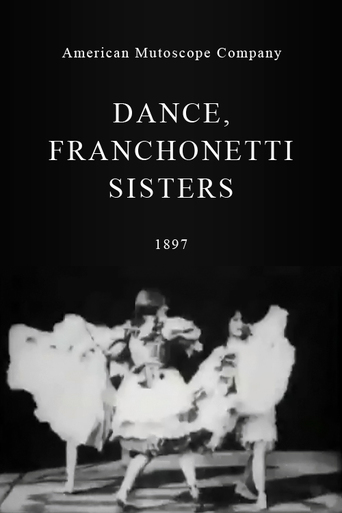
Three young women with dark, curly hair stand on a stage with a black background and patterned carpet or tile underfoot. They wear tights, ballet shoes, and frilly dresses to the knee with multiple petticoats and ruffled drawers. They begin by raising their right legs up by their heads, and then perform a dance with a variety of kicks and leg movements, their hands either in the air or pulling up their skirts. The sisters also grab their right legs again and hop in a circle, then do cartwheels and land on the floor in the splits. Jumping back to their feet, the women twirl in circles and around each other in circles in what appears to be a type of pirouette, while holding up their skirts and showing their bloomers in a manner similar to the cancan.
... View MoreThe movie is currently not available onine
American Mutoscope & Biograph